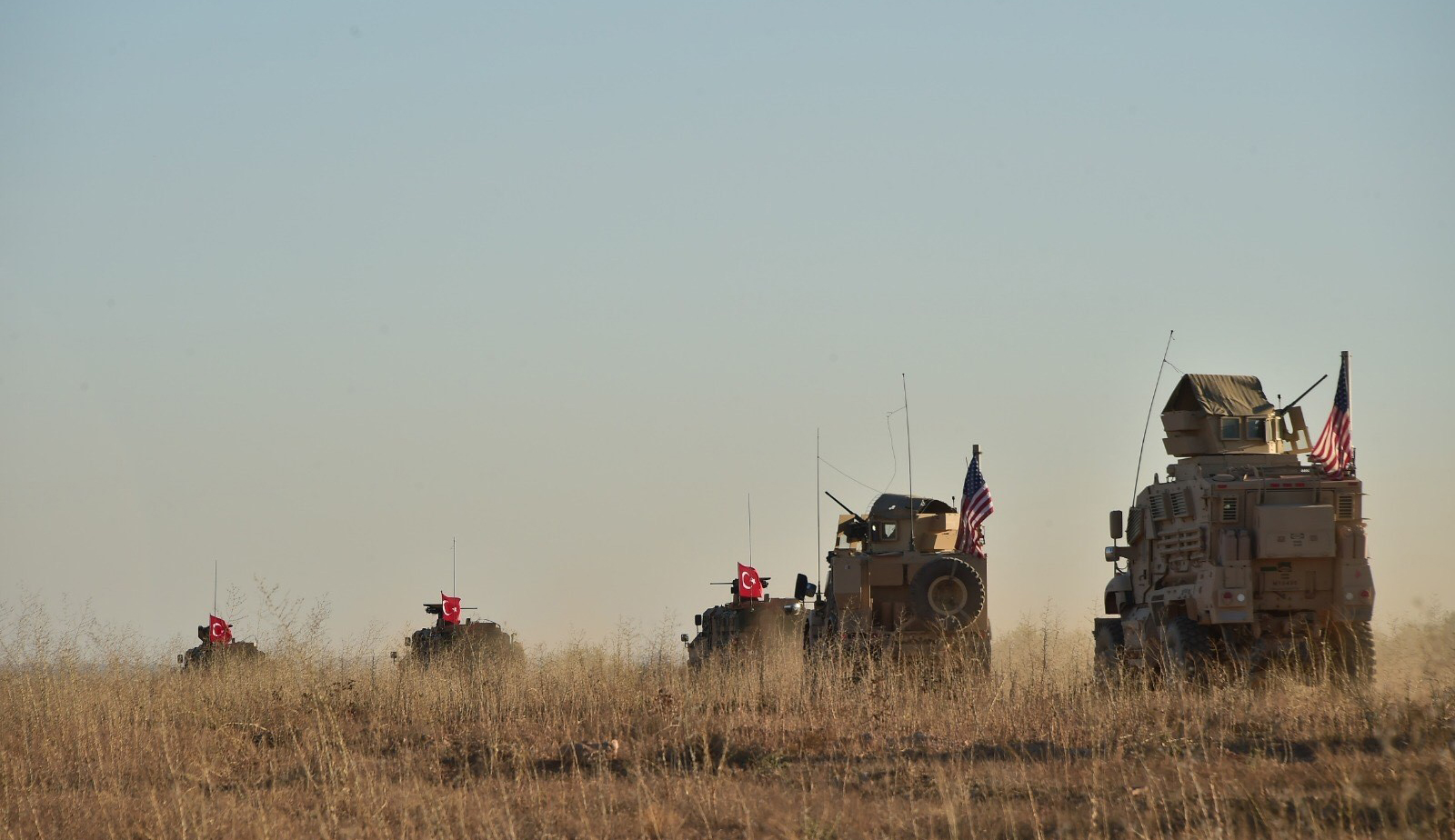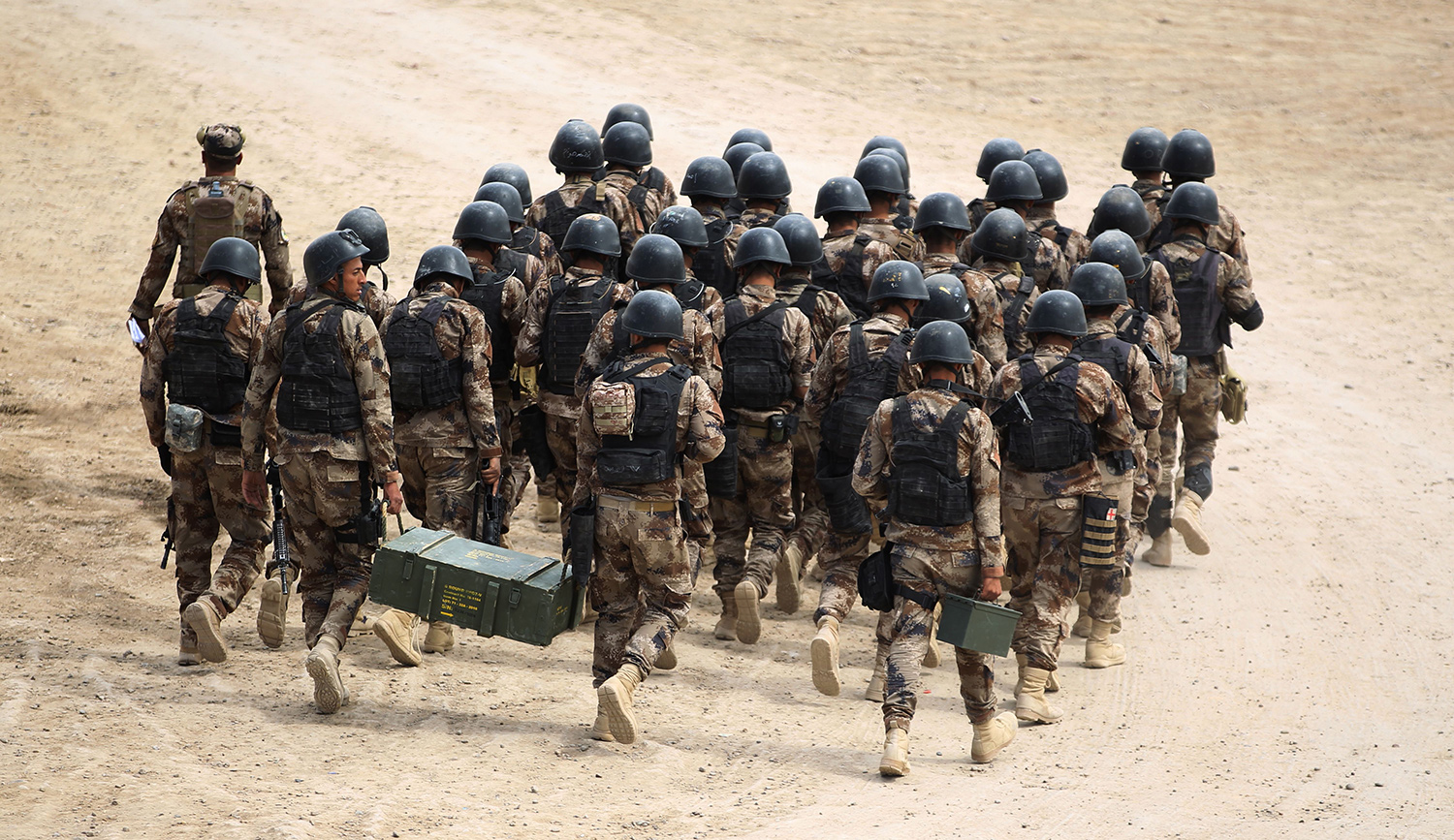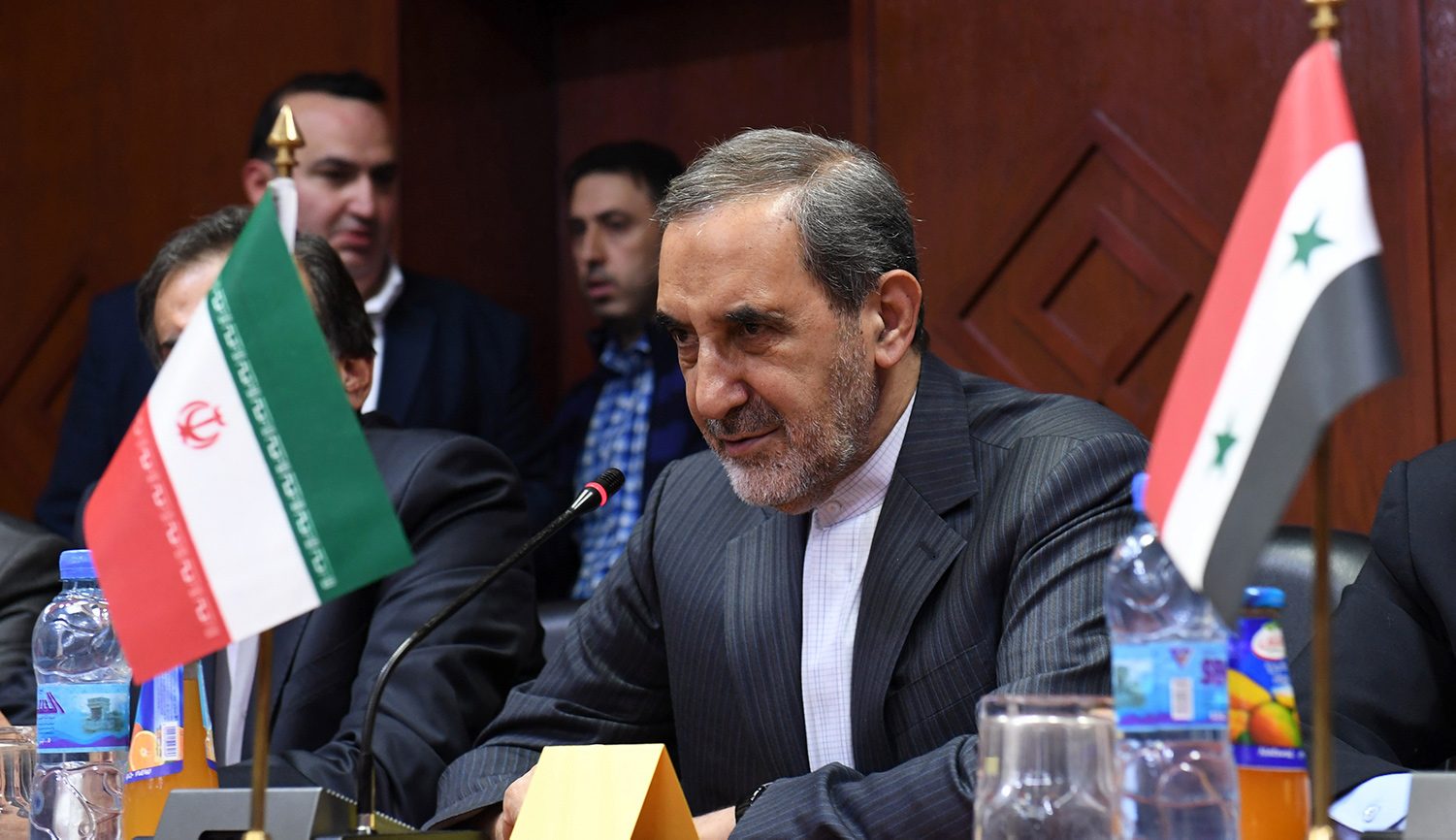I have immense respect for the judgment of Michael Doran. So it’s significant that he thoroughly opposes Donald Trump’s decision to withdraw U.S. forces from Syria.
Wait a moment, you say. Doran doesn’t write that in “The Strategy Washington Is Pursuing in the Middle East Is the Only Strategy Worth Pursuing.” If anything, in his latest essay for Mosaic, he acquiesces in Trump’s Syria decision, and indeed regards it as “inescapable.”
To which I’d answer yes—but, before Trump announced his decision, Doran was all against it. And since he was just as persuasive then as he is now, what’s a sworn Doran fan like me supposed to conclude?
Consider, for example, Doran’s earlier Mosaic essay on U.S. strategy (co-authored with Peter Rough), dated September 2017. There the authors argued that Syria should be turned into a theater of direct U.S. confrontation with Iran. They urged that Trump seek “an authorization [from Congress] for the use of military force in Syria against Iran and its proxies.” They also proposed that the president “consider building and maintaining a forward operating base” even deeper in Syria along the middle Euphrates River Valley. And they called for “increasing troop levels in that country” (my emphasis). These moves would show that the United States “is every bit as intent on making its influence felt in the region as are the Iranians and the Russians.”
Nine months ago, following an earlier Trump announcement that the United States would leave Syria “very soon,” Doran wrote an op-ed for the New York Times. There, once again, he insisted that this would play into the hands of Iran. The United States had to show Iran that “America is resolute in its determination to pare down the Iranian nuclear program. Retreating from Syria,” he asserted, “will foster the opposite impression.”
To this rationale, he then added a Turkish one: “The moment American troops leave Syria,” he predicted, the Kurds would “inevitably turn to Moscow,” and Vladimir Putin would use this leverage to pull Turkey away from the West. (Russia’s purpose, he later said, was “to turn Turkey into a Trojan horse inside NATO.”) Policy recommendation: Trump “should reconsider his intention to withdraw.”
In light of these writings, Doran’s current essay, hailing Trump’s strategy as “the only one worth pursuing,” is a bit baffling. In his previous Mosaic essay, not only had he favored an alternative strategy; he thought Israel should be a partner to it, calling on the United States and Israel to “develop a joint military plan designed to contain and degrade Iranian forces in Syria.” Reading that earlier essay, I thought that was bold of him, since I couldn’t remember the United States and Israel ever having had a “joint military plan” to accomplish anything.
Last July, to an audience at the Tikvah Fund where I was present, Doran complained that his proposal for a confrontational U.S. policy in Syria wasn’t making any headway:
Both the Israelis and the Americans now notionally have a policy of driving the Iranians out [of Syria], but I go back to the gap between ways and means, between aspirations and tools. I don’t see the two sides putting together the tools to do it. I think they could if they put their mind to it, and I keep writing things suggesting that they should, but unfortunately nobody is listening to what I say.
In fact, plenty of people were listening, and he wasn’t alone. But if by “nobody” he meant Trump, he was right. Today, says Trump, we are at a point where “now” is the “time to come home.” Although the conditions and time frame of this withdrawal seem to change from one day to the next, it’s certain that America won’t be adding troops, bases, or plans. It will only be subtracting them.
What does Doran think this means for Israel? “If the Israelis have any hope of preventing Syria from becoming a permanent Iranian military base, they must act alone.” But, he reassures us, fear not: in any confrontation to come, Trump will have Israel’s back. He’ll keep the region safe by supporting U.S. allies to the hilt against America’s adversaries. And if Israel gets into a big scrape along the way, “Trump and his foreign-policy advisers, led by [National Security Adviser John] Bolton and Secretary of State Mike Pompeo, will likely be eager to provide Israel with any weapons and intelligence it may lack to do the job.” Moreover, if Russia gets in Israel’s way, the United States will serve “as a deterrent to Russian military action.”
Indeed, there’s no doubt that in a pinch Trump would be more supportive of Israel than Barack Obama ever was. I’ll grant Doran that. Alas, however, there’s no guarantee that if and when the crisis comes, Trump will be in the White House, or Bolton and Pompeo won’t have become “distinguished fellows” in some Washington think tank. Someone other than Trump might be calling the shots in the Oval Office, and that someone won’t necessarily feel bound by Trump’s strategy, policy, or tweets (just as Trump hasn’t been bound by Obama’s). Indeed, the partisan packaging of this strategy, as presented by Pompeo in his recent speech in Cairo, may render it anathema to a successor administration.
So any assurances of what Trump is “likely” to do for Israel when push comes to shove are of no enduring value. The withdrawal from Syria is real and “now,” while any American “backing-to-the-hilt” is a vague promise with a current expiration date of January 20, 2021. This may be why a Who’s Who of Israel’s ill-wishers have had no problem welcoming Trump’s move. “Trump did the right thing,” wrote Harvard’s Stephen Walt. (He added: “In case any of you are wondering, I found it hard to type that sentence.”) Former CIA man Paul Pillar gave Trump a similar endorsement: “Even a broken clock is correct twice a day. And the decision about military withdrawal from Syria was the right one.” This has been echoed by the A-list of America’s most outspoken minimizers of the danger posed by Iran.
But let’s set aside the partisan posturing of Beltway pundits, and try to be objective. Is the Syria withdrawal a “disaster” for Israel? That was the word used by the Israeli columnist Caroline Glick in her own initial response. Trump, she tweeted, “is giving a huge victory to Iran, Russia, and Turkey and imperiling Israel, the Kurds, and Jordan.” (She later deleted the tweet.) Or is it an “opportunity”? A senior official in Israeli Prime Minister Benjamin Netanyahu’s office was quoted as saying that his boss viewed it as just that.
In and of itself, it’s neither, and much depends on what follows it. In my view, Syria probably isn’t going to turn into an Iranian military base against Israel, or an Iranian-controlled “land bridge.” Iran is out on a limb in Syria, and Israel, for its part, hasn’t needed help to do what it’s been doing systematically and successfully for the past two years—that is, walloping Iran every time it raises its head. The contest is far from over, but Iran hasn’t found a way to counter Israel’s overwhelming superiority in the Syrian theater. So withdrawing U.S. troops from Syria doesn’t “imperil” Israel.
What about the risk to America’s reputation? Only 2,000 American troops presently dominate a third of Syria. Rarely have so few controlled so much at so little cost, a testament to the supremacy of the American military machine. In walking off the field in the fourth quarter, and leaving behind vulnerable allies (the Kurds) and vengeful enemies (the remnants of Islamic State), the United States gives up a huge lead. It’s quitting while ahead, but it’s still quitting. And even if you think Syria isn’t worth a candle, a reputation for staying-power is worth a great deal. Osama bin Laden used to recite a litany of U.S. retreats as incentives to attack it.
That said, the inconstancy of America’s role in the Middle East is really no secret, either to its allies or to its enemies. The United States isn’t part of the Middle East, and doesn’t border it. That’s probably why it’s never had a perfectly clear view of its interests there, producing manic-depressive bouts of intervention and withdrawal. In a 30-year cycle, the United States might dispatch a half-million troops to one Middle Eastern desert and agonize about keeping 2,000 in another.
And this volatility correlates with the rhythms of American domestic polarization, causing policy to swing like a weather vane in a gale. A U.S. president from the blue team comes to Cairo and proclaims that “fear and anger . . . led us to act contrary to our traditions and ideals. We are taking concrete actions to change course.” Ten years later, a U.S. secretary of state, from the red team, comes to Cairo and declares in similar language, but to opposite effect, that “we’ve learned from our mistakes . . . [and] reversed our willful blindness.” All of these course changes and reversals are elements of pitched domestic battles. If you’re a savvy ally of the United States, you learn to ride out the cycles. But if you miss a cue, they can bring you down. (Think the shah of Iran and President Hosni Mubarak of Egypt.)
No one appreciates this more than Israel. It’s impossible to imagine a better ally of Israel than the United States, but one cannot be sure the United States will always do just the right thing at just the right time. Indeed, had Washington had its way, Israel might have missed its window for independence in 1948, its entry to the nuclear club in 1963, its chance for victory in 1967, and its blow to Iraq’s nuclear program in 1981. The list could be lengthened and brought up to the present.
The lesson is that there’s no substitute for Israel’s own ability to defend itself, and its independence to decide when and how to do so. Hence, as rival Washington “blobs” clash and leak over the U.S. posture in the Middle East, and the foreign-policy tribes shake their fists and point fingers, Israel is thinking hard about how best to fill the space left by a shrinking America. It is taking advantage of the consternation of America’s Arab allies in order to deepen regional ties. It is seeking understandings with Russia, over both Syria and Iran. And it’s working to identify every possible benefit of Trump’s own “back-our-friends” strategy, while he’s still in a position to make good.
This does not amount to kowtowing to all the wrong people, as some (liberal) critics of Israel would have it. It’s making the most of shifts in America’s posture, over which Israel has no say at all.
America may bounce back in the Middle East, or it may not. The weather vane may spin yet again. But even if it does, long experience also has taught the Jews not to presume the consistent and timely support of any other polity. That’s why there is a state of Israel, and why it can’t ever be too strong.
More about: Iran, Israel & Zionism, Middle East, Politics & Current Affairs, Syria







